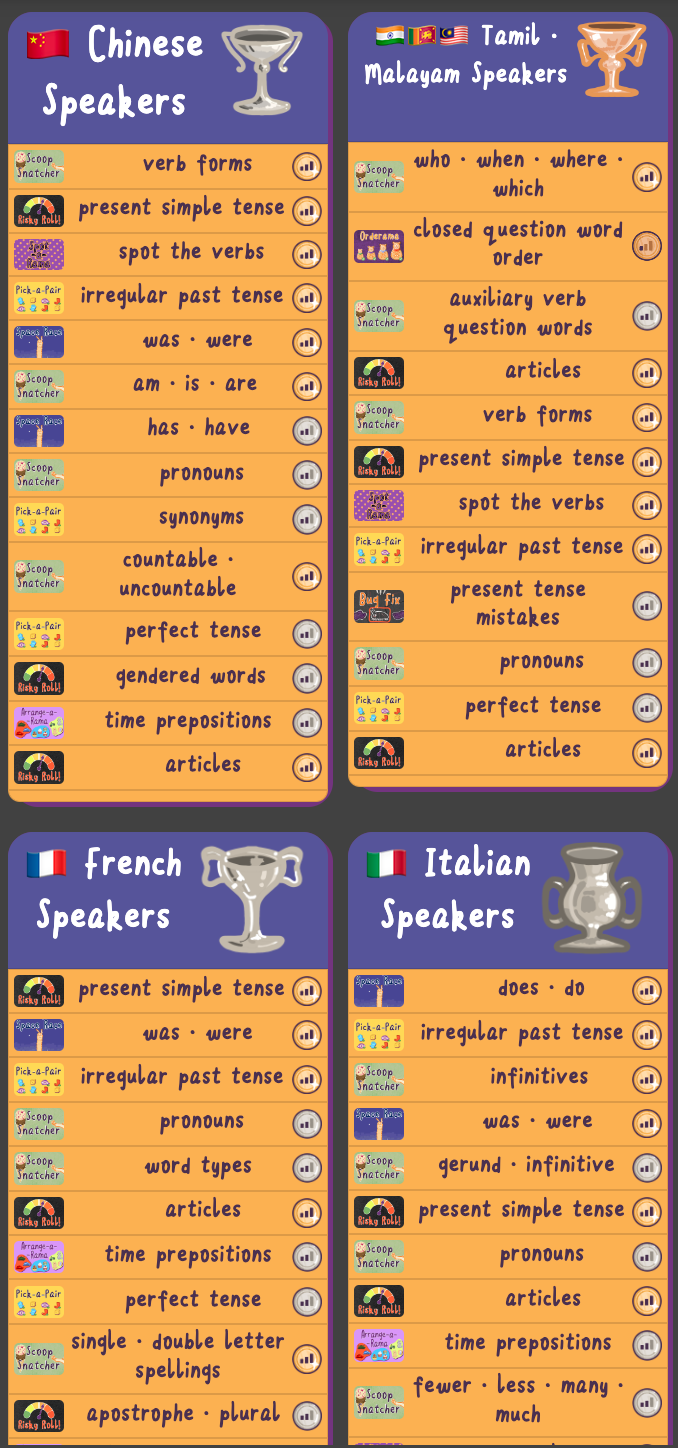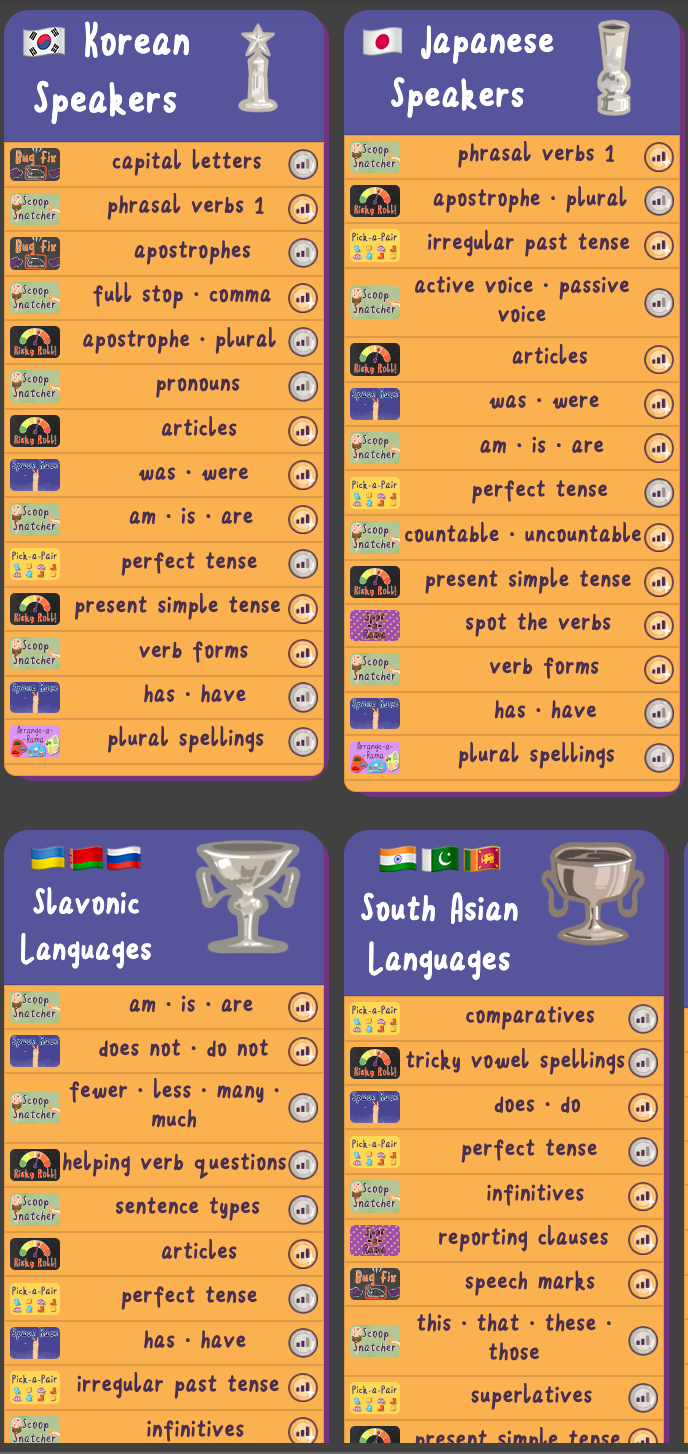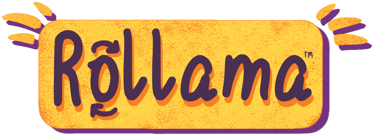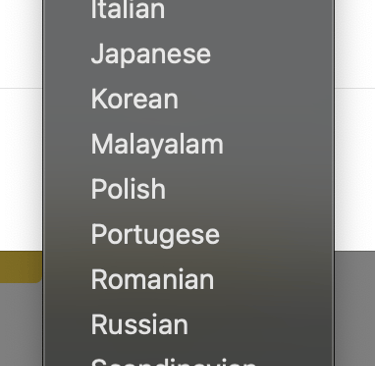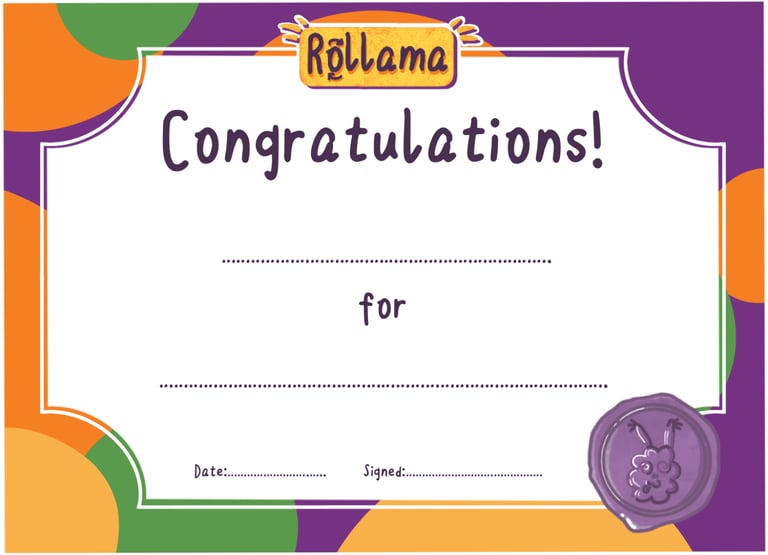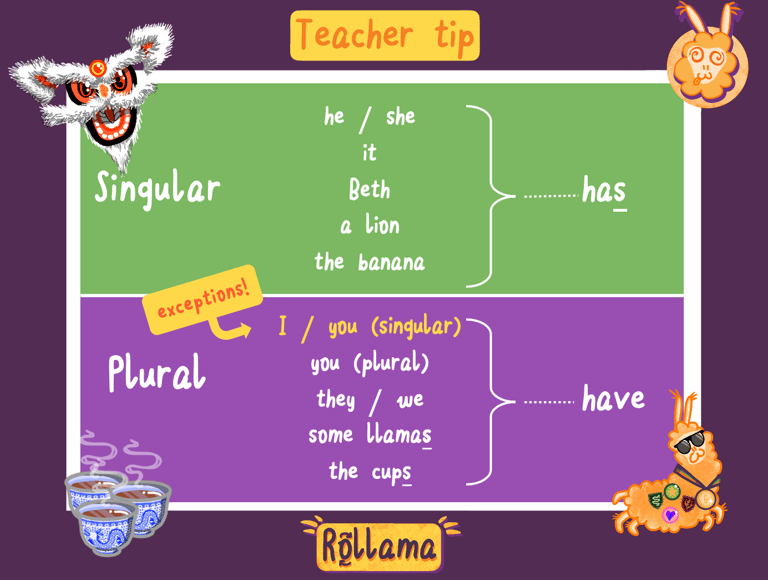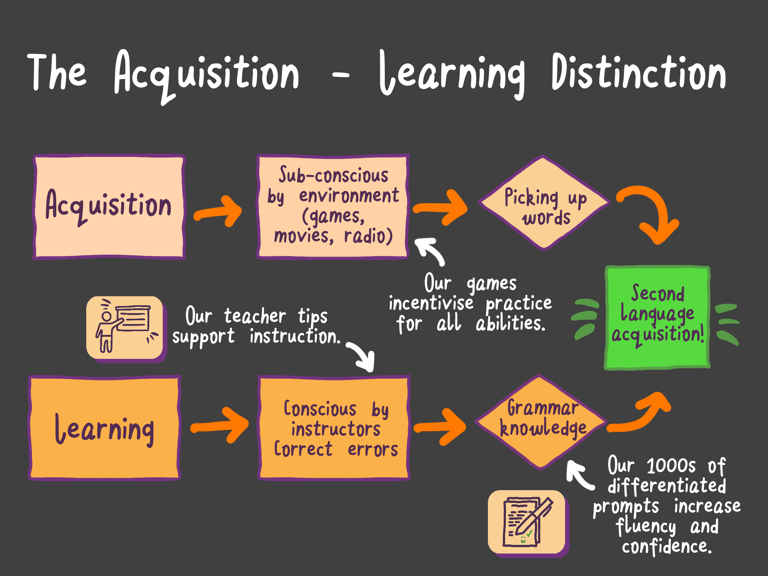Key Benefits for EAL Departments
A description of the features and benefits that Rollama can provide for EAL/ESL departments
Rollama's EAL Provision
English has a reputation for being particularly tricky to learn. Its style norms, loanwords and idiosyncrasies have grown and compounded over generations of global proliferation.
Learning English can be easier or harder depending on the similarity of the learner's native language (aka L1). Swedish is one of the closest cousins of English. A Swedish native speaker is likely to find the process considerably easier than a Chinese native speaker.
Language comparison
Languages can be compared in a range of aspects - phonics (sounds), syntax (word order), sentence structure, vocabulary, to name but a few.
Speakers of different L1s will find English challenging in different ways.
For instance, Korean has no capital letters. Chinese has no subject-verb-agreement or tense inflections. Finnish has no auxiliary verbs. Japanese has no stylistic preference against repeating nouns within a sentence.
L1 translation issues
Learners who translate language directly from their L1 will encounter many predictable and natural mistakes.
Meaning is not always impaired, but some cases will create confusion: in Korean, Turkish and Japanese, respondants to a negative question ('Don't you like popcorn?') will use yes to agree with the statement (speaker doesn't like popcorn), and no to disagree with the negative (speaker does like popcorn). Misunderstandings are easy to imagine.
One of the top priorities of English teachers is to enable clear communication of meaning. Stylistic fluency comes afterwards. Both are served by focused, repetitive, and independent practice of common difficulties.
Rollama EAL Challenges
That's why we created EAL Challenges: different curated lists of games which address English skills that are particularly tricky for speakers of specific first languages.
We closely studied academic research (see link below) to identify which games would have the greatest impact for EAL learners of each background.
We are always looking to increase the list of first languages we cater for. Please get in touch if you have a request.
Reference:
